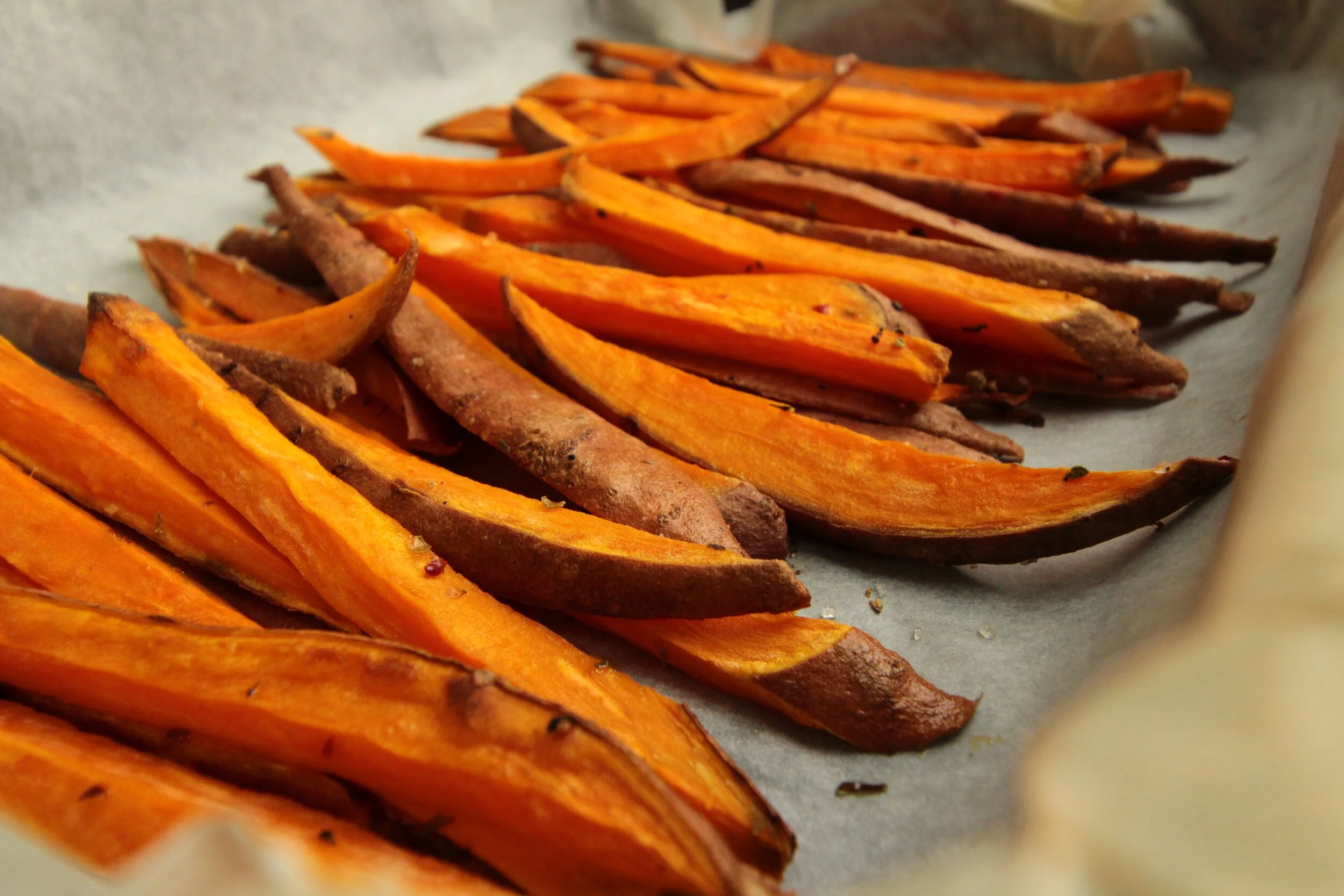Sweet Potato Baby Food Recipe - Perfect First Food
Sweet potato is an excellent first food for your baby. Sweet potato is safe for babies from the moment you introduce solids. In fact, sweet potato is one of my favourite first foods for baby that it is included in my free download Top 12 First Foods (it’s THAT good!).
The best part about sweet potato is there are so many delicious ways to prepare it, that it is suited to any style of baby food introduction. You can begin with sweet potato baby puree (add some bone broth for yummy, gut-friendly flavour), or boil, roast and steam in larger sizes for baby-led weaning approach.
Sweet potato, when cooked properly, is very difficult to choke on, so it is particularly safe for babies to eat. It is soft and gets moulded in the mouth. Though the texture might make your baby gag, however this is a normal response to learning to eat (and nothing to get stressed about).
Nutritional value of sweet potato for your baby
They are nutritionally dense in nutrients and one of the best sources of vitamin A (necessary for development of vision), vitamin C, B6 and potassium.
Sweet potatoes are a great source of fibre, but too much too soon might cause some constipation in your baby! Be sure to go slow, and if your baby displays signs of constipation, remove the sweet potato until bowel motions are regulated again.
Adding bone broth to your sweet potato should support digestion and reduce the risk of constipation, as well as encourage healthy gut development in your baby.
Introducing Sweet Potato to your baby
6 to 9 months old: Offer sweet potato puree for baby, or mashed sweet potatoes with some olive oil or bone broth for hand-scooping. You can also use a spoon, by placing mashed sweet potato on them and either feeding your baby, or allowing them to feed themselves with the spoon. If you’re confident with your baby’s eating, you can provide long sweet potato chips/sticks for them to practice putting in their own mouth. This is excellent for baby led weaning. To find out more about baby led weaning please read “The Best Guide to Baby Led Weaning”.
9 to 12 months old: At this age, your baby will be more confident with eating (and you will be more confident in their eating too!). When their pincer grip is developed, you will notice they can handle smaller pieces of food. You should also notice their gag response begins to regulate, and possibly they gag less, as their vagus nerve develops. This enables them to handle chunky mash or larger bites in their mouth.
At this stage you will be able to create sweet potato baby food combinations. Blending with different vegetables to create a yummy veggie mash will expose them to new foods. Check out my different vegetable combinations in my new ebook 101 Baby Food Recipes (that your baby will love).
12 to 24 months old: At this age, you can add sweet potato to other meals, and if they absolutely love it, you can use it as your base food to get them to try new and less exciting foods. They should be able to handle all varieties of cooking methods, and rarely have an issue with sweet potato allergies or intolerances.
Children with sensory issues might dislike sweet potatoes - you may prefer to try a soup or something easy to swallow, or a sweet potato muffin.
Nutritional Value of Sweet Potato
Sweet potatoes are a rich source of fibre as well as containing an array of vitamins and minerals including iron, calcium, selenium, and they’re a good source of most of our B vitamins and vitamin C. One of the key nutritional benefits of sweet potato is that they’re high in an antioxidant known as beta-carotene, which converts to vitamin A once consumed.
Sweet potatoes are high in fibre, which has been shown to promote a healthy digestive system.







![As a nutritionist [and a Mum] the most common question I got asked by family & friends was "when do I start feeding my baby solid foods?"
Google, Facebook, community posts, Mums, Grandmas & Pinterest all say different things.
](https://images.squarespace-cdn.com/content/v1/5cb5b1e2049079446d948bf9/1621248796165-1P8UP9CZS18YB4YHQFAH/image-asset.jpeg)





